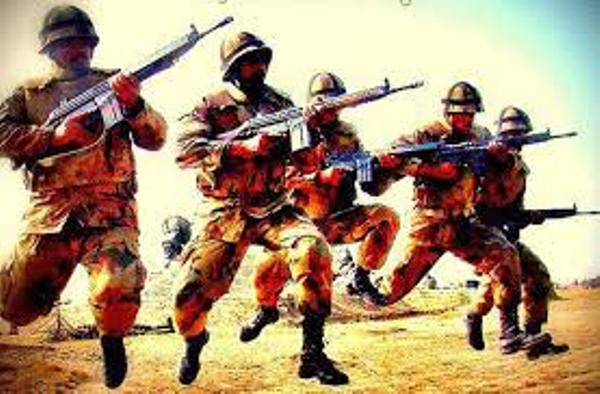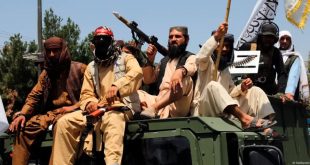By Afrasiab Khattak: The main feature of Pakistan’s 70th National Day was the impressive and colourful military parade that remained the focus of media coverage on 23rd of March this year. The march past was supposed to represent the country’s determination for defeating terrorism, which is a noble and desirable goal.
So far so good. But for the last many years the country has been moving in circles on this front and despite the rhetorical claims regarding breaking the back of extremist terror we find it as entrenched and potent as it was years ago.
Even after getting out of the mode of denial of the terror problem and making a public commitment to defeat it, Pakistan’s performance has been less than impressive.
National Action Plan (NAP) has for all practical purposes fizzled out.
The biggest achievement of operation Zarb-e-Azb has been pushing most of the terrorists into Afghanistan and creating conducive conditions for Taliban to step up their war against the Afghan state and society.
The new military leadership has deemed it fit to declare a new operation against terrorism called Radd al Fasad.
How will it be different from the previous operations we don’t know.
Apart from some noble individual exceptions the parliamentarians as a whole seems to be resigned to their powerlessness and marginalisation.
Hence there is no serious debate on this issue.
So what is basically wrong with the country’s strategy and tactics in the war against terror? Unfortunately we Pakistanis aren’t used to stocktaking even on a national day best suited for such an exercise.
The weakest link in Pakistani strategy against terrorism is the civil military divide, the tall claims of being on one page from both sides not withstanding.
This serious duality of thought and action is spread over from governance to national security and foreign policy and is an open secret by now.
Internally the said split reveals itself in the struggle for controlling the commanding heights of the state system in terms of making and executing policies.
The military’s policy of fighting a war of attrition in neighboring countries through “non state actors” for achieving regional domination directly collides with the political government’s policy of regional economic cooperation for turning the country into an economic tiger.
The timing of recent border closure with Afghanistan was rather embarrassing for the government of PM Nawaz Sharif when the country was hosting a regional summit for promoting regional connectivity.
We heard about the decision of the Prime Minister to open borders with Afghanistan as a good will gesture but apparently he or the foreign ministry didn’t play any role in closing it.
It is also quite obvious that CPEC could become a game changer only when Central Asian states will be able to link up with it through the shortest route that’s Afghanistan.
The most serious stumbling block on the path of achieving this objective is project Taliban of the Pakistani security establishment.
Pakistani government leaders have been repeatedly saying that they don’t want a Talibanised Afghanistan as that will turn our western neighboring country into a launching pad for Pakistani terrorists.
That has already partially happened as TTP is launching terrorist attacks against Pakistan from the Taliban controlled areas.
But despite that Pakistan based Taliban leadership is in the third year of their latest war in Afghanistan like so many previous ones.
The present civilian government has its own limitations in fighting terror.
It has been soft on a number of terror outfits on the basis of a misguided notion that such a policy can keep Punjab, its main political base, safe.
Historical experience has proved it time and again that policy of appeasement towards extremism and terrorism is an unmitigated disaster.
Even now the Punjab government is reluctant to go after some of the proscribed organisations.
The time, energy and resources that the civilian and military factions of the ruling elites use to ward of each other’s domination weakens the state and provides space to the activities of anti-state extremists.
Intelligence agencies, both civilian and military are the eyes and ears of the state.
Unless they pool together their professional capabilities to defeat the forces who are not only fighting against the state but also want to impose their so called ideology on the people of Pakistan, there can’t be hope for winning the war.
NACTA was to be strengthened and made effective for achieving the aforementioned goal.
But again this project hasn’t taken off.
Unfortunately failure is not an option in this area and the country’s leadership, both civilian and military will have to accept this challenge.
Pakistan is at a crucial stage of socio-economic development where adhocracy won’t work anymore.
The country has to make a strategic choice of focusing on geo-economic benefits.
This would require a clear break from the policies rooted in the Cold War geo-strategy.
It has to be a complete paradigm shift.
It obviously can’t happen overnight but clarity in thinking through the policy shift is indispensable.
Prime Minister Nawaz Sharif can provide leadership by convening extraordinary meetings of security related state institutions to bridge the gap between de facto and de jure.
He also needs to take all political forces in confidence.
Partisan biases should be set-aside in working on this project.
Parliament is the forum for discussion on national policy in a parliamentary system of government.
In camera sessions can be held to discuss sensitive issues.
Here the present government also needs a break with its past practice of sidelining the Parliament.
Remaining passive and pushing this issue under the carpet can be disastrous for everyone.
The writer is a retired Senator and an analyst of regional affairs.
 Afghanistan Times
Afghanistan Times




